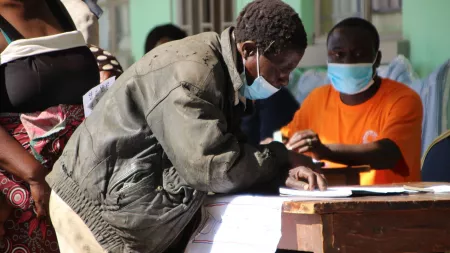On 11th February 2022, CARE in Zambia began distributing basic kits in the Choma district in southern Zambia as almost 1.6 million people across the country are in dire need of food and shelter. Over the past six weeks, Zambia has seen unprecedented rains, flooding, and strong winds that have led to widespread destruction. Fields have been flooded, roads destroyed, buildings submerged and roofs blown off. While this increase in rainfall is linked to regular seasonal patterns, extreme weather has pushed remote communities and vulnerable populations to the brink as they are already dealing with food insecurity, COVID-19, and a chronic lack of funding.
Chikwe Mbweeda, CARE Country Director in Zambia said: “These floods are worse than anything we have seen in Zambia in the last few years. The Disaster Management and mitigation Unit has indicated that 54 of the countries’ 116 districts have been affected and this number is likely to rise. Small fishing communities and those living in remote areas with poor road access have been particularly hard hit. At CARE, we are concerned about the impact this flooding and frequent climatic shocks are having on women and girls especially in the rural areas which are bearing the brunt of the devastation. As women lose their livelihoods and girls are unable to go to school, we are worried about the psychosocial impact it will have on them.”
In Choma, one of the hard-hit districts in the south, CARE will be providing hygiene, shelter, and kitchen kits, COVID-19 protection packs – comprising of face masks, sanitizers, and gloves to 5,000 people. The distribution will continue until 12th February 2022 and next week CARE will be in Kalomo district.
Chikondi Chabvuta, CARE Southern Africa Region Advocacy Advisor said, “Communities in Zambia have had droughts, flooding, and cyclones affect their livelihood, which is farming. The people of Zambia contribute 0.01% percent to global total emissions. They are resilient people, picking themselves up time and again, but the impacts show how unjust climate change is. Rich countries continue emitting without feeling the same level of climate impacts, while people in Zambia are trying to adapt through climate-resilient interventions but the impacts keep coming. It isn’t fair; the people who emit the least should not have to go through the indignity caused by climate change.”
For media inquiries, please contact David Mutua, CARE East, Central, and Southern Africa Regional Communications Manager, [email protected]
